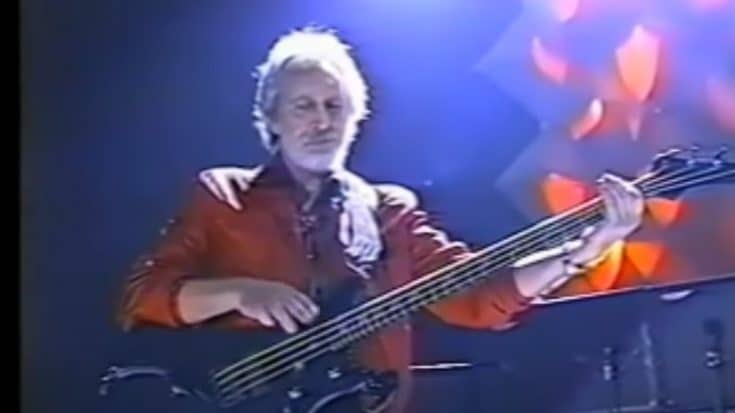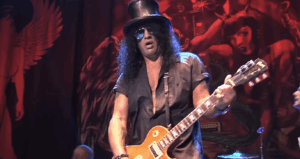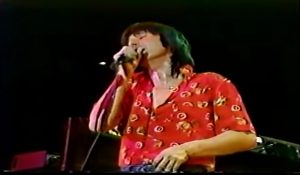We Breakdown Why John Entwistle Is A Bass Legend Unlike No Other

via Vicente Marti / Youtube
In the world of rock drumming, Ginger Baker of Cream stood out for his jazzy flourishes. His drumming was far closer to the technical mastery of Buddy Rich than the steady beat of Ringo Starr. John Entwistle, the bassist for The Who, shared a similar spirit. Entwistle’s influences stretched far beyond the typical rock bassist, and his playing incorporated a level of dexterity more commonly associated with jazz.
Entwistle’s impact on the music world is undeniable. For a decade, The Who dominated the rock scene, and Entwistle’s bass lines were a driving force behind their sound. His influence continues to inspire bassists today.
From the thunderous riffs of Geezer Butler to the melodic runs of Geddy Lee, countless bassists cite Entwistle as a major inspiration, even bordering on an object of envy. Entwistle’s case for being the greatest rock bassist of his generation is undeniable.
A Musical Upbringing and Early Collaborations
John Entwistle, born in 1944, was practically destined for a life in music. Surrounded by musicality, he first took to the piano under his mother’s guidance. Soon after, he embraced his father’s instrument of choice, the trumpet.
Entwistle’s natural talent for brass instruments shone through his school orchestra memberships. Initially a trumpeter, his repertoire later expanded to include the French horn. Fate intervened when Entwistle met Pete Townshend at Acton County Grammar School. This chance encounter sparked a lifelong musical partnership.
Their first band together, The Confederates, was a far cry from the iconic rock group they would become. Entwistle initially impressed Townshend with his impressive brass skills and in-depth knowledge of jazz. In turn, Townshend showcased his prowess on the five-string banjo.
Embracing Rock and Roll
The burgeoning rock and roll scene of the 1950s in the US had a profound impact on both musicians. Inspired by the likes of The Beatles and The Rolling Stones, Townshend and Entwistle started exploring string-based instruments. Townshend transitioned to the iconic six-string guitar, while Entwistle gravitated towards the bass guitar. This shift reflected their recognition of the revolutionary potential of rock and roll as a new musical movement.
With the addition of vocalist Roger Daltrey and later drummer Keith Moon, Townshend and Entwistle formed the core of what would become The Who. The band aimed to join the “British Invasion” movement, taking the US and UK charts by storm with catchy, accessible songs.
Their early success was undeniable, with UK Top Ten hits like “I Can’t Explain” and “My Generation”. Even in these nascent stages, Entwistle’s signature style was evident – crafting melodic basslines that went beyond the typical root notes.
The Ox and Thunderfingers
The late 1960s saw Entwistle solidify his reputation as a bass powerhouse. His bandmates affectionately nicknamed him “The Ox” for his imposing physique and legendary appetite. However, for fans, he was “Thunderfingers”, a name that captured his lightning-fast fretwork and remarkable composure while navigating the bass neck.
While Townshend shouldered most of The Who’s songwriting duties, crafting elaborate rock operas, Entwistle made significant contributions with several enduring tracks. One such gem is “Boris the Spider”, a bizarre yet captivating song from 1966’s A Quick One album.
The song’s driving force lies in Entwistle’s punchy, melodic bassline, complemented by his unhinged vocal performance. “Boris the Spider” holds a special place in music history, often cited as a trailblazer for the heavy metal genre.
Pioneering Bass Work and Live Performances
“Boris the Spider” remains a landmark in rock history, largely due to Entwistle’s groundbreaking bass innovation. Released in 1966, the song showcased his inventive approach to the instrument. Three years later, Entwistle’s bass work on Tommy provided a sturdy rhythmic foundation, laced with inspired flourishes, that resonated with fans of progressive rock.
Entwistle’s unique approach to the bass guitar was highly innovative. He defied convention, treating the instrument like a lead guitar. His complex basslines and solos were meticulously crafted, often utilizing round-wound strings and heavy amplification to achieve a distinct, powerful sound.
Tracks like “The Real Me” displayed his dynamic studio work, while live performances provided a platform for him to unleash extended, electrifying solos – a testament to his mastery of the instrument.
A Jazz-Fueled Iconoclast
Entwistle’s background in jazz fueled his ability to effortlessly challenge rock and roll conventions, while his impressive finger strength and dexterity allowed him to achieve feats on the bass guitar that most bassists of his era could only imagine. This talent alone would place him among the greats, but Entwistle’s true impact lies in his pioneering spirit. He became the original innovator who unlocked the true potential of the bass guitar, influencing countless musicians who followed.
Entwistle’s death in 2002 left a void in the music industry. He was revered as one of the most skilled and imaginative bassists ever. Following The Who’s golden decade (1964-1974), a wave of now-famous bassists have cited Entwistle as a crucial influence, even bordering on hero worship.
Among his disciples are legendary names like Geezer Butler, Krist Novoselic, Geddy Lee, Brian Gibson, Billy Sheehan, and Victor Wooten. Their success serves as a testament to the lasting impact of John Entwistle’s revolutionary approach to the bass guitar.
Geddy Lee Called Entwistle the “Bass Player’s Bass Player”
Geddy Lee, the frontman and bassist for Rush, is frequently mentioned alongside Entwistle for their shared mastery of complex melodies and lightning-fast accuracy. Lee himself acknowledges a massive debt to The Ox for his own success.
In a 2022 interview with Music Radar, Lee hailed Entwistle as the “bass player’s bass player” and a lifelong idol. Lee’s admiration spanned Entwistle’s entire career, from the band’s early hit “My Generation” to later anthems like “Won’t Get Fooled Again” and “The Real Me”.
Lee’s effusive praise left no room for doubt: “he was quite possibly the greatest rock bassist of all time,” Lee declared. “I don’t think it’s a stretch to say that.”













